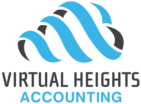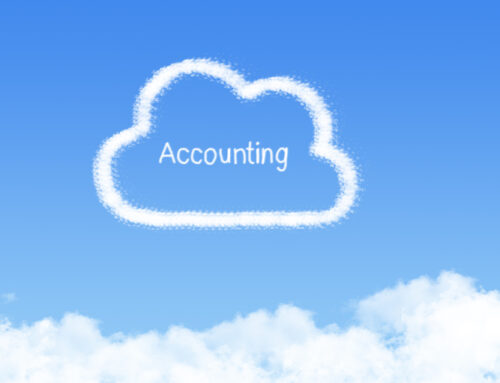And when to do them.
When it comes to making sure your business is running smoothly, there are a number of essential accounting and finance tasks you don’t want to miss. If you haven’t already done so, consider adding these tasks to a checklist or system to make sure they don’t get forgotten.
While there are many accounting and finance tasks to be done on a regular basis, today, we’re highlighting essential tasks you can complete weekly, monthly, and annually to keep your business healthy and growing.
Weekly Accounting and Finance Tasks
Although these tests are labelled as “weekly,” some of these things can be done daily, depending on how busy you are.
Send Invoices
It’s hard to keep a business running if you’re not getting paid, and it’s hard to get paid if you don’t invoice your customers. This task may not apply as much if you own a business where customers must pay for the products before leaving your store. If this is the case, then the next point—ordering inventory—may be more relevant for your business.
People get busy, and unfortunately, invoices sometimes get missed—it happens. If this is the case for you, batching your invoices might be the better way to prepare them. Using an app like Xero, can also make invoicing super quick once it’s set up.
Other ways to make sure you don’t forget to invoice your customers include setting alarms on your phone or using a notebook. The key is to put a system in place so invoicing doesn’t get missed. The best system is a system you’ll use, so take some time and think about what might work best for you.
Order Inventory
If you don’t already have an inventory tracking system, we like DEAR Inventory Systems. The frequency with which you check your inventory levels will depend on how busy you are. Once you’ve built up your customer base, you’ll want to make sure you consistently stock the products they purchase so they don’t go somewhere else. You can also set up regular shipments with your suppliers once you know what your weekly or monthly inventory levels look like.
Record Transactions
Recording transactions is another task that may vary depending on how busy you are. The busier you are, the more frequently you want to update your bookkeeping. This way it doesn’t become overwhelming. We like Xero’s bank import feature which makes bookkeeping quick and easy. With a program like Xero, it will take you no time at all to update your bookkeeping weekly or even daily.
Monitor Cash Flow
If you don’t have a cash cushion in your bank account, then you’ll want to monitor your cash flow. This includes making sure your revenue was deposited, and you received the correct amount. Even automatic payments can sometimes get screwed up. When you’ve got bills coming up that you need to pay, make sure you have the cash in your account to cover them.
This sounds basic, but you’d be surprised how many business owners have no idea how much cash is in their bank accounts.
And if you do have a nice cushion of cash in your bank account, you may want to consider transferring it somewhere it can earn you interest.
Monthly Accounting and Finance Tasks
Pay Vendors
Vendors expect to get paid, and if they don’t get paid, they will likely stop sending supplies your way. It’s common for vendors to send a monthly statement. Find a way to make sure their invoices get paid in a timely manner. Put a reminder in your phone or on your calendar. If you have an accounts payable department, find out what system they are using to make sure bills don’t get missed.
Some vendors offer early payment discounts, so watch this as well so you can save yourself some money. Every little bit helps!
Make Payroll Remittance
Most payroll remittances are due by the 15th of the following month. There are some exceptions to this rule, but most companies will need to send payroll taxes withheld on their employees behalf to the Canada Revenue Agency by the 15th.
Once again, make sure you have a system for tracking the remittances so they don’t get missed. Generally, once the last payroll of the month is processed, payroll remittances can be calculated and paid. But you’ll want to make sure the cash in the bank will cover this amount.
Record Outstanding Transactions
These types of transactions are a bit different than the weekly transactions discussed above. Every month you (or your bookkeeper) should be updating your complete general ledger and reconciling your accounts (more on that below).
Common monthly outstanding transactions include transfers between accounts, transactions in the shareholder loan accounts, and cash on hand transactions. All those receipts sitting in your cash-on-hand box or cash drawer need to be recorded.
Reconcile Accounts
Once all your transactions are recorded, you’ll want to make sure account balances such as bank and credit card accounts are accurate. For bank and credit card accounts, this means noting any outstanding transactions you were expecting to be processed but haven’t yet gone through.
It’s a good idea to examine your accounts receivable and your accounts payable lists on a monthly basis too. This will act as a failsafe in remembering to record payments from customers and pay amounts owing to your vendors.
Strategize for Next Month
When strategizing for next month, examine your general ledger accounts and see how well they reflect the goals you set for your business that month. If you didn’t meet your goals, it’s important to find out why. Maybe something happened in your personal life, and your business took a back seat for a while.
Discovering why goals weren’t met and financial targets weren’t hit helps you make adjustments going forward. For example, if you invested in an advertising campaign that didn’t generate the kind of revenue you estimated, you wouldn’t want to pay for a similar campaign until you knew what you needed to change to generate the results you were hoping for.
Make notes about what worked and what didn’t. Check in with team members who may have a different point of view than you. Your accountant can also provide insight regarding changes to make going forward.

Annual Accounting and Finance Tasks
Meet with Accountant
We recommend meeting with your accountant biannually, but at the very minimum, you will need to schedule a meeting with your accountant annually so they can file your corporate tax return.
Why bi-annually?
Meeting with your accountant twice per year gives you the advantage of knowing what’s coming when it’s time to file your corporate tax return. While prepping for a mid-year meeting, your accountant will review your general ledger and estimate your taxes owing. This meeting also gives you an idea if you are on track to meet your business goals for the year and make any necessary changes.
Review Comparative Data
Your accountant will usually go over this with you in an annual or bi-annual meeting. If they don’t, it’s an informative process you can do on your own as well. Review your income and expenses and note whether they are up or down compared to last year. Any major discrepancies need to be investigated.
Chances are, if you’ve been keeping a close eye on your accounts during the year, you will already know why they are different.
A five-year comparison is another tool you can use to see the long-term trends in your business. Have your numbers been gradually increasing or decreasing during that period? Does one year stand out as not fitting in with the others? Maybe something happened that year that had a direct impact on your business.
Review Industry Data
Reviewing industry data can be helpful depending on where you’re located. Industry data is a good benchmark to compare your financial information against as long as you remember the data is based on averages.
A business in the same industry as yours, but a vastly different geographical area, can have very different statistics. It costs more to live in larger cities and this can affect pricing from city to city. If you’re interested in learning about your industry’s stats, check out the Statistics Canada website.
Different types of businesses will have different tasks they complete on a routine basis. If you find yourself doing the same things daily, weekly, monthly, or annually, but you don’t have a system in place to make sure those tasks don’t get missed, it’s time to start thinking about that.
Whether you need help with your weekly, monthly, or annual accounting and finance tasks, we’re here to help. Contact us to learn more.





